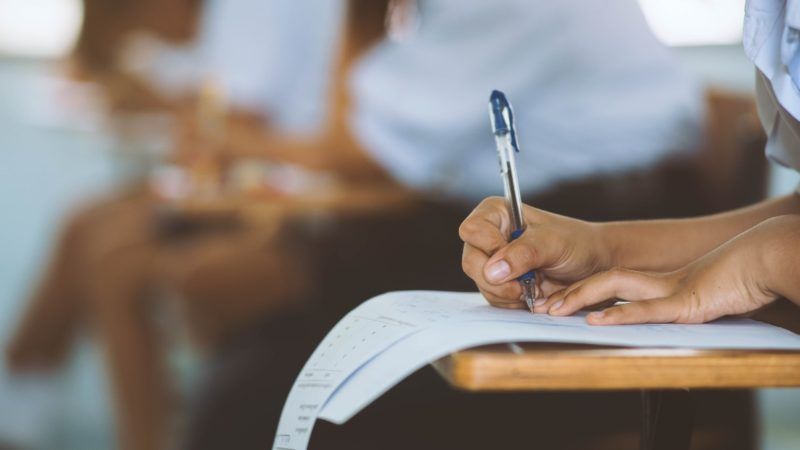Private Schools Are Adapting to Lockdown Better Than the Public School Monopoly
A new survey finds parents are substantially more satisfied with private and charter schools’ responses to the pandemic than they were with those of traditional public schools.

More than 120,000 American schools have closed since March, a change affecting more than 55 million students. As we approach August, an intense debate about reopening schools has been brewing. One side argues that schools should reopen so that families can return to work and children can receive the education taxpayers have paid for. The other side says that schools cannot reopen safely without $116 billion more in federal funding, on top of the $13 billion already allocated to states to reopen schools.
This debate wouldn't be so contentious if we funded students instead of school systems. The funding could follow children to wherever their families feel they would receive an effective education, be it a district-run school, a charter school, a private school, or a home setting. In that situation, if an individual school decided not to reopen—or if it reopened unsafely or inadequately—families could take their children's education dollars elsewhere.
That is how food stamp funding currently works. If a neighborhood grocery store refuses to reopen, it may be inconvenient, but families wouldn't be devastated; they could take their money elsewhere. Imagine if you were forced to pay your neighborhood Walmart the same amount of money each week regardless of whether they provided your family with any groceries. The store would have little incentive to reopen in an effective or timely manner.
It sounds absurd. But you have essentially just imagined today's compulsory K–12 school system.
And it's even worse than that. Even if the institution were required to provide goods and services through online or other platforms, it would still have weak incentives to get things right, because families would still be powerless.
New data show that's precisely what happened with the K–12 school system during the lockdown.
A nationally representative survey conducted by Ipsos Public Affairs found that private and charter schools were substantially more likely to continue providing students with meaningful education services during the lockdown than traditional public schools.
The survey found that private and charter school teachers were more than twice as likely to meet with students daily than teachers at district-run schools. Private and charter schools were about 20 percent more likely to introduce new content to their students during the lockdown. About 1 in every 4 traditional public schools simply provided review material for what students had already learned before the closures. Arlington Public Schools, for example, decided in April not to teach students any new material for the rest of the school year.
Another national survey, this one conducted by Common Sense Media, found similar results. Private school students were more than twice as likely to connect with their teachers each day, and about 1.5 times as likely to attend online classes during the closures.
A recent report by the Center for Reinventing Public Education found that only 1 in 3 school districts examined required teachers to deliver instruction during the lockdown, and less than half of all districts expected teachers to take attendance or check in with students regularly.
And just yesterday, The New York Times reported that in many towns, private schools are reopening while public schools are staying closed.
Traditional school systems' failure to adapt to COVID-19 helps explain why many families are turning toward homeschooling. A new nationally representative survey by EdChoice and Morning Consult just found that the pandemic has made families about 2.4 times as likely to have a more favorable view of homeschooling as they are to have a less favorable view. Another national poll, this one by RealClear Opinion Research, found that 40 percent of American families say they are now "more likely" to homeschool after the lockdowns end. So many families in North Carolina committed to homeschooling this month that they crashed the state government's website.
This might also explain why the new national Education Next survey found that parents were substantially more satisfied with private and charter schools' responses to the pandemic than they were with those of district-run schools. Parents of children in private and charter schools were at least 50 percent more likely to report being "very satisfied" with the instruction provided during the lockdown than parents of children in traditional public schools.
These results aren't surprising. Private schools can adapt to change more effectively because they are less hampered down by onerous regulations than their government-run counterparts. Choice schools also have real incentives to provide meaningful educations to their students while reopening safely. Private and charter schools know that their customers—families—can walk away and take their money with them if they fail to meet their needs.
K–12 students have been getting the short end of the stick for far too long. But it doesn't have to be this way: We could fund students directly and truly empower families. Legislators in Pennsylvania and Maryland have already made proposals to partially fund families directly in the fall. Hopefully they'll succeed—and hopefully more states will follow.


Show Comments (49)